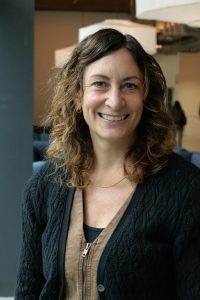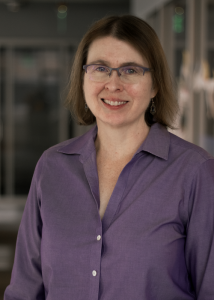
After 18 years in the Health Services Ph.D. program as a student, faculty member, associate director and as director since 2018, Dr. Emily Williams will step down from the role of director. Dr. Peggy Hannon, director of the University of Washington’s Health Promotion Research Center, will take over as interim director of the program at the start of the autumn 2024 quarter.
“I’m proud to leave the program more diverse, better funded, and with a stronger curricular focus on core fundamental causes of poor health than when I started as director,” said Dr. Williams.
“Emily is a brilliant scientist, a successful getter of NIH grants, and a hustler at making things happen for people,” said Health Systems and Population Health Department Chair Dr. Megha Ramaswamy. “The Ph.D. program is a jewel because of those leadership actions.”
Road map for the Ph.D. leadership transition

Dr. Hannon looks forward to stewarding the program while the search for a new director gets underway. “I hope to maintain and grow our many strengths and will work with program and department leadership to continue learning about and addressing students’ needs,” she said. “This is a top-ranked program with amazing students, faculty, and partner institutions; I’m excited and honored to support the program this year.”
“Peggy is such a well-seasoned, measured leader,” Dr. Williams added. “She has a huge heart and she’s extremely organized.”
While those in the program should not expect major, abrupt changes, the needs of students have evolved over time, and some improvements are already in the works to address these evolving needs. For instance, as started under Dr. Williams’s leadership, the Doctoral Seminar (affectionately known as ‘Doc Sem’) will operate on a new model starting autumn 2024 with refinements originating from student feedback. Drs. Ramaswamy and Hannon will take the reins, pilot, and continuously improve this new programming.
Maintaining the Ph.D. program’s student-centric focus

The program leadership team is also filling out. In addition to Emily Bernet transitioning to full-time with the Ph.D. program as senior program manager last year, research associate professor Dr. Edwin Wong will join the team as associate program director. Dr. Wong teaches key courses in the program covering topics in health economics and quantitative methods and has successfully chaired numerous dissertation committees and closely mentored students across different areas of emphasis. “Mentorship of students in the Ph.D. program has been among the most rewarding of my professional experiences,” said Dr. Wong, “and I’m delighted to continue this role at a closer level.”
Through the transition, the program’s student-centered focus will remain intact. “As a long-standing faculty member in the program,” said Dr. Wong, “I’ve been impressed by the original and dynamic ideas being developed by students and the enthusiasm to explore these ideas using skills developed within the program.”
“My own experience as a graduate student (in a different institution) was full of highs and lows,” said Dr. Hannon. “That lens informs my goals for leading this program this year and my work with the students I mentor. My door is open, and I’m looking forward to meeting with and supporting our students.”
“The Health Services PhD program has a rich history in training researchers in areas of expertise related to public health and health services research. As a program, we’ve been successful in graduating students who have cultivated highly productive careers in a variety of sectors including academics, government, public health departments, health policy and integrated health systems among others.”
– Dr. Edwin Wong
“Peggy will no doubt bring her long track record as a successful scientist, mentor, and leader to this transition in leadership,” said Dr. Ramaswamy. “We look forward to the future.”
Stepping down, not away
And in that future, Dr. Williams intends to remain a part of the Ph.D. community as co-program director of two training grants, an Academic Affairs Committee member, and a mentor.
“I am definitely going to miss being at the helm of that community and community-building,” she said. “I have loved having the job, and I have loved the changes I’ve been able to implement in a large bureaucratic system. I’m very, very excited to continue being part of the community and mentoring the students that I’m mentoring and the future students to come.”
At the same time, this change will also allow Dr. Williams more time to focus on her own professional growth, the growth of the department, and her research portfolio.
“I care about each and every one of them and their unique characteristics and the ways I’m invested in supporting them and their successes. My interactions with them, every single one of them was the highlight of this job for me.”
– Dr. Emily Williams
“I’m excited about a lot of things. I’m currently leading a study focused on implementing substance-related care into HIV clinics nationally and several other community-engaged studies on disparities in substance use care,” said Dr. Williams. “I have taken on the role of faculty council chair. In the last two years, when I’ve been in faculty council, I’ve been really excited to be part of the process of updating the Academic Affairs Handbook which we will implement this year and which I hope will help to create a more welcoming, inclusive and diverse environment within our faculty.
“And like, more yoga and lake jumps, you know?”
